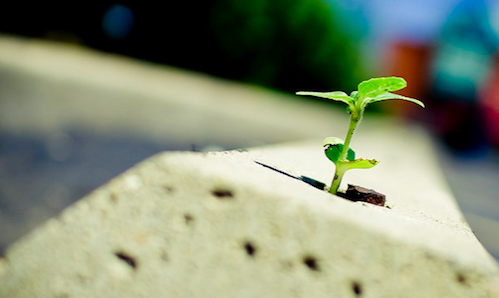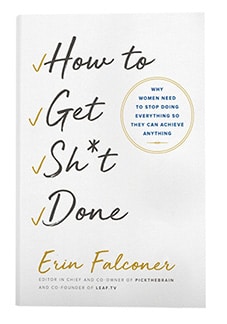Over the last seven years or so, I’ve been on a journey to discover what it really means to be ‘me’. This time has included some of the darkest moments of my life, as well as some of the brightest. I’ve been lucky enough to have support from friends, and therapy was also invaluable, but what ultimately helped me through the tougher times was resilience.
Resilience is one of the most overlooked life skills, but is one of the most important. It seems astonishing that schools choose algebra over “Resilience 101” lessons – but that’s the world we’re living in. This means that it’s up to us to develop our resilience and teach ourselves how to call on our internal strength in times of stress, strain or struggle.
In this post, I want to talk about four tips that I’ve found invaluable for my own levels of resilience. Resilience is necessary for a wide range of situations. It’s not purely reserved for times when we deal with ‘big’ events like death, illness, divorce, or unemployment.
It shows up in our day-to-day ability to bounce back from a ‘no’, to hear unfavorable feedback and retain our belief in the project, and most of all to hold on – even with just a finger – to an internal belief that at the end of it all, we will be OK.
1. Think: Is it really personal?
We cannot be in control of everything 100{54c12dad2cc2b53ae830e39915b1a3e70288dbcbbeb8bbf8395437c5dc3c512c} of the time: sometimes we encounter events, relationships and situations that don’t turn out as we’d hoped. Whereas before we were hearing “yes”, we go through times in life where we start hearing “no” This isn’t necessarily because of who we are or what we’re doing, but because of a whole host of other factors, from timing to individual whims.
When I first started writing for my website, I felt incredibly vulnerable. Putting my thoughts and writing out into the world felt like a risky thing to do. Several months down the line, someone left a comment on one of a post I wrote about forgiveness, saying that what I had written was “ridiculous”. I felt pretty crushed, but quickly realised that forgiveness is an emotive topic that many people have strong beliefs around; it was possible that what I had written challenged the commenter’s perspective. Equally, just because this person disagreed with me didn’t mean that I was necessarily wrong, just that we held different perspectives on the topic.
Once I stopped taking the comment personally and started viewing it objectively (someone disagreed with something I wrote and communicated that), I stopped feeling crushed and started focusing instead on the many positive comments I received in response to the post.
2. Practise building your resilience in times of calm
In my experience, we’re required to call on our resilience cyclically. Certain periods of life have require very little resilience, while others require more than it feels we can muster at the time. I’ve come to appreciate how useful the calmer, stress-free moments are for building my resilience muscle.
Most of us – myself included – have many beliefs built into what it means to be rejected, whether that’s for a job, a date, a publishing deal, or any other situation. When we can practise hearing ‘no’ from a place of stability, self-awareness and self-compassion, we start to realize that no doesn’t necessarily mean ‘because you’re a terrible job candidate/person/writer etc.”; no just means “no”. Carrying this awareness forward into more stressful times in life helps us hold onto that stability and compassion, exponentially improving our ability to bounce back from tougher times.
Deliberately inviting discomfort into our lives by putting ourselves in positions where we might hear a “no” might not sound like an appealing prospect, but it helps us develop a sense of trust in our ability to deal with life’s curveballs and sets us up to come out of challenging situations as a stronger and wiser person.
3. Start keeping a journal
Keeping a journal is useful for many aspects of personal development, especially when it comes to developing our resilience. Not only does keeping a journal give us a chance to work through and process our experiences at our own pace, but it can also help us recognise resilience we didn’t even know we had.
Having kept a journal for the past several years, one of the most valuable gifts I’ve taken away from it has come from the practice of reading back through entries I made months or years previously. Not only does it improve my self-awareness, but doing this has also helped me recognize that quite often, when I thought I was lacking strength, the resilience I needed was inside me all along – I just hadn’t recognized it for what it was.
4. Ask for help
Resilience doesn’t mean dealing with everything on your own. An important part of developing our resilience revolves around being able to recognize what we need to support us through difficult times, and taking action to meet that need. Far from being a sign of weakness or an inability to cope, asking for help is a sign of strength.
When we’re in the middle of a challenging situation or a time of crisis, we might feel like we don’t know who to turn to. Making a list of our “2am people” in advance – the people we’re close enough to be able to call any time of day for support and vice versa – sets us up to get the support we need and gives us the best chance of helping ourselves.
Resilience isn’t an innate talent or gift, it’s a skill. Like all skills, it takes consistent practice to strengthen. When we pay due care and attention to strengthening our resilience, however, we unlock a deeper level of potential and opportunities in our lives that would otherwise stay hidden.
What is your experience with resilience? Do you have any tips that you would add to the list above? Leave a comment and let us know.
Erin shows overscheduled, overwhelmed women how to do less so that they can achieve more. Traditional productivity books—written by men—barely touch the tangle of cultural pressures that women feel when facing down a to-do list. How to Get Sh*t Done will teach you how to zero in on the three areas of your life where you want to excel, and then it will show you how to off-load, outsource, or just stop giving a damn about the rest.





I love that you said that if a person is struggling to cope during difficult times, they should not be afraid or ashamed to seek help. It’s great that you said that asking help isn’t a sign of weakness, and is part of being resilient. I have been struggling with my emotions lately after I suffered a huge financial blow. Perhaps I should look for an overcoming tragedy public speaker that can motivate me to get back on my feet. Thanks for this!
Your post got my attention and shows me different perception for how we should boost our site. This is a really perfect for a new blogger like me who doesn’t want their site to be messy with those spammers who don’t even read your post but they have the guts to comment in your site. Thanks again.
Speaking of site, take a look at here: chokdeebacarrat
I am glad to read this post, it’s an impressive piece. I am always searching for quality posts and articles and this is what I found here, I hope you will be adding more in future. คาสิโนออนไลน์ได้เงินจริง
Albeit different converters are indeed acceptable, alto is maybe the best I’ve utilized. You can likewise acquire a thought of this after you seehttps://es.altoprotectpdf.com/faq. The entire experience is extremely encouraging.
EIS Components is the stocking Distributor of TLP2161(TP,F), we specialize in Toshiba Semiconductor & Storage all series electronic components. TLP2161(TP,F) can be shipped within 24 hours after order. If you have any demands for TLP2161(TP,F), Please kindly submit an RFQ here or send us an email. We will reply you as soon as possible.
에볼루션코리아
994rtIBqI\{}
에볼루션카지노
911vHXxYB~;#
에볼루션바카라
730LXaYaS$!-
에볼루션룰렛
126KMwhAB..#
에볼루션블랙잭887sOSkXK}^(
에볼루션카지노
413RupnYt)*>
에볼루션카지노
096abOScR\$~